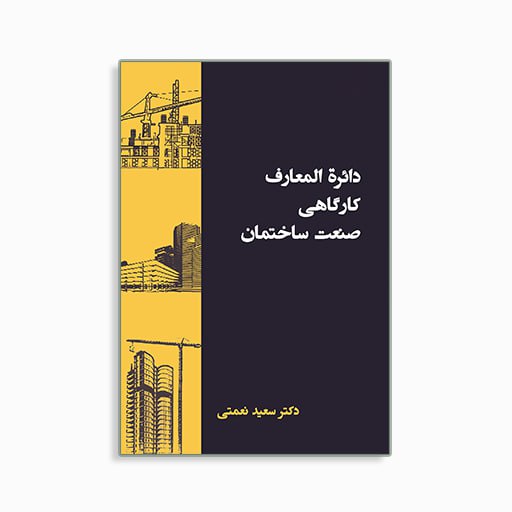دائرة المعارف کارگاهی ساختمان
Dr. Saeed Nemati Farsi Edition/ Encyclopedia /Paperback
This content will be shared across all product pages.
Product details
- Publisher : Kidsocado (February 8, 2022)
- Language : Persian
- Paperback : 272 pages
- ISBN-10 : 1989880789
- ISBN-13 : 978-1989880784
- Item Weight : 1.07 pounds
- Dimensions : 7 x 0.57 x 10 inches
Most professional disputes that arise in civil engineering project workshops among the three main parties—the employer, contractor, consultant, and sometimes a fourth party—are due to a lack of precise knowledge of national regulations and other contract annexes. Additionally, impromptu decision-making, which occurs frequently in construction workshops, often lays the foundation for many subsequent technical disputes and, potentially, future legal cases. In management and even technical meetings, there is usually insufficient time to align the content of meeting minutes with national regulations and standards. Consequently, it is often observed that on one hand, undue financial burdens are imposed on one of the aforementioned parties, and on the other hand, incorrect technical decisions are made and communicated.
One of the main reasons for this disorderly situation is the diversity of national regulations and the large volume of technical directives, which, besides the impossibility of having a comprehensive understanding of all their aspects, sometimes appear to be and even inherently are in contradiction with each other. Furthermore, every word used in workshop communications carries legal weight, and utmost care and precision are required in their use to avoid unwanted arbitration in competent authorities. Even these authorities, when issuing a ruling, naturally do not have sufficient understanding of all the provisions of engineering law, which is why most of these disputes are referred to official judiciary experts. These experts also need a comprehensive and concise reference guide to prepare a thorough report.
Such a reference, in the form of a handbook, did not exist in Iran before the publication of this book. This issue is somewhat global and generally affects the field of civil engineering. Therefore, the author, relying on years of managerial and executive experience in major civil projects both domestically and internationally, has compiled approximately two thousand three hundred and seventy of the most important and common acronyms from twenty-two volumes of national building regulations. This effort aims to assist especially young engineers in making technical decisions and in facing managerial challenges in civil engineering workshops.
